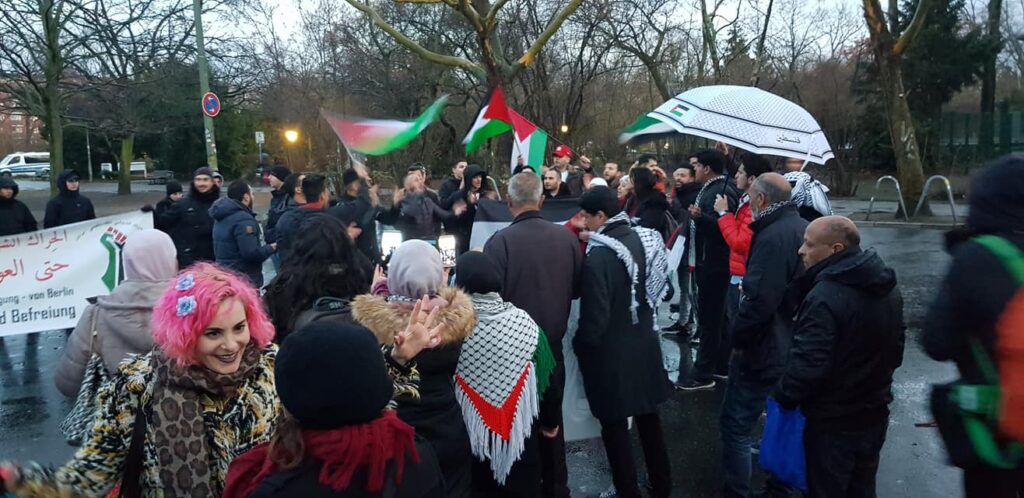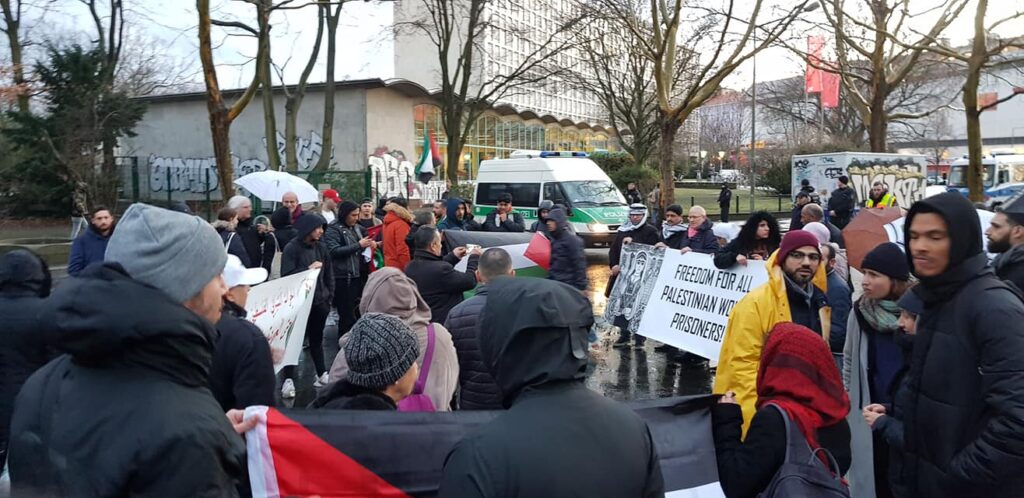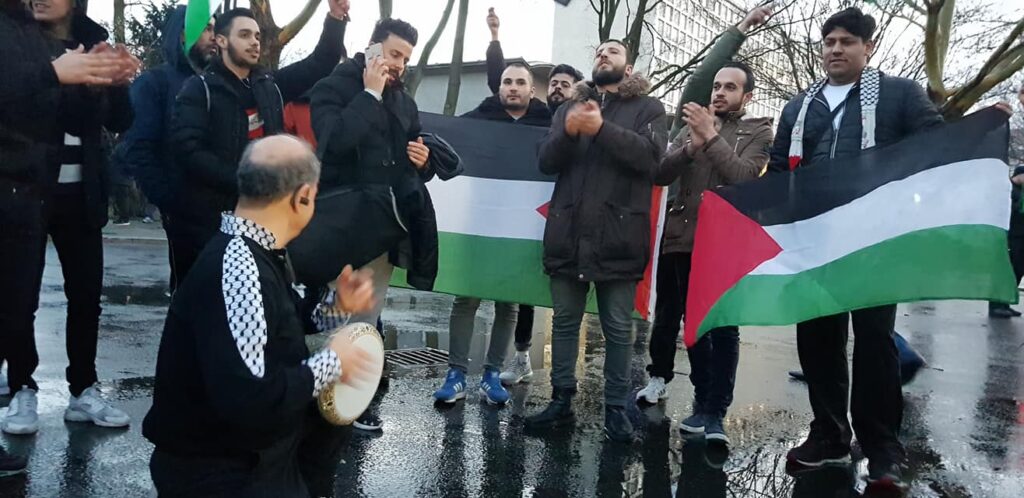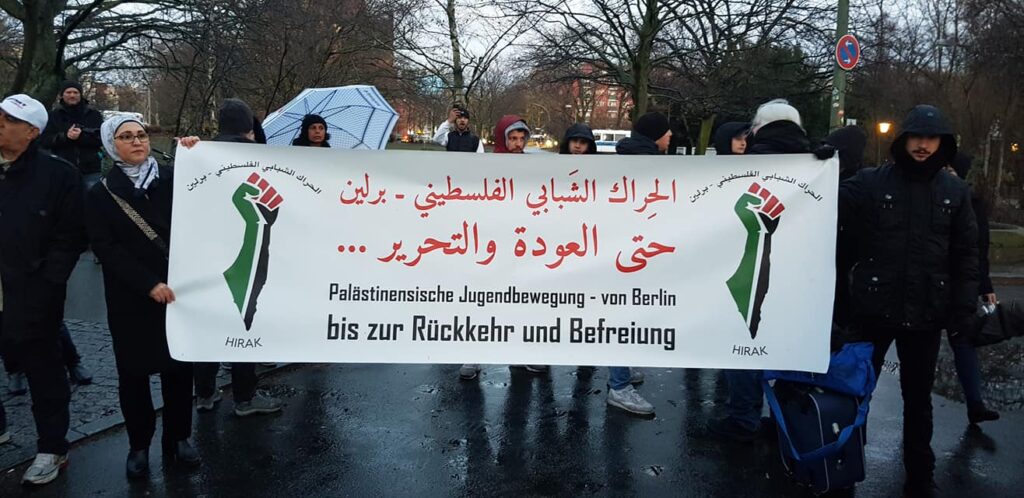Thursday, 21 March
6:00 pm
Intal Globalize Solidarity
Haachtsesteenweg 53
1210 Brussels
Facebook: https://www.facebook.com/events/1986771378298341/

Open discussion with Palestine solidarity activists from across Europe
How is Belgium complicit in the Israeli occupation? What kind of military relations does the Belgian government have with Israeli military and weapon industry? How is our taxpayers’ money being used to support human rights violations by Israel?
Thursday the 21st of March
LOCATION: Intal – Chaussée de Haecht 53,
Begins at 18h00
Languages: English and French
As a part of the Israeli Apartheid Week, Intal Globalize Solidarity invites you to an event discussing Belgian complicity in Israel’s war crimes against the Palestinian people. The Israeli Apartheid week is an international series of events that seek to raise awareness about Israel’s apartheid regime over the Palestinian people and build support for the growing Boycott, Divestment and Sanctions (BDS) movement.
We will discuss the presence of Israel’s biggest arms company – Elbit – in Belgium and its impact on the Palestinian people.
From 2003, OIP Sensor Systems, located in Oudenaarde, is wholly owned by Elbit. As a key company in the Israeli arms industry, the presence of Elbit’s factories in Belgium should not go unchallenged, its components produced in Belgium are used in attacks on the Palestinian people.
OIP Sensor Systems is currently seeking a major contract to provide the navies of Belgium and the Netherlands with mine warfare vessels, using the slogan “buy Belgian.” The vessels which OIP is offering would include the Elbit-manufactured Seagull system.
At this event you will have an opportunity to meet, discuss with and learn from the experience of activists from across Europe who are involved in organizing campaigns and direct actions challenging their countries’ military relations with Israel.
This event will be the starting point for re-launching the Belgian campaign for a military embargo on Israel.
Speakers:
DAVID CRONIN is a journalist and an associate editor of The Electronic Intifada, a website focused on Palestine. His books include ‘Balfour’s Shadow: A Century of British Support for Zionism and Israel’ and ‘Europe’s Alliance with Israel: Aiding the Occupation’.
EWA JASIEWICZ is an activist in the Palestine solidarity movements since 2002. She was part of the International Solidarity Movement and a coordinator of the Free Gaza Movement that sent siege-breaking boats and flotillas to Gaza. She was a medical rescue volunteer with ambulances during the Israeli attack on Gaza in 2008/9. In the UK, she is part of London Palestine Action and helped organize the hugely successful roof top occupation and shutdown of Elbit’s Shenstone drone engine factory during Israel’s 2014 war on Gaza as well as other BDS actions. In Poland, she co-founded the Polish Campaign of Solidarity with Palestine and wrote ‘Raze Gaza’ which was nominated for the Beata Pawlak award for international literature.
JEAN GUY GREILSAMER is an activist and campaigner from BDS France.
in cooperation with ECCP – European Coordination of Committees and Associations for Palestine
______________________________________________________
Belgisch geld voor Israëlische wapens
Open discussie met activisten solidair met Palestina uit heel Europa.
Hoe is België medeplichtig in de Israëlische bezetting? Welke relaties heeft de Belgische overheid met de Israëlische militaire industrie? Hoe wordt ons belastinggeld gebruikt om de schending van mensenrechten door Israël te steunen?
Donderdag 21 maart
LOCATIE: Intal – Haechtsesteenweg 53, Sint-Joost
Begint om 18h00
Talen: Engels en Frans
In het kader van de Israeli Apartheid Week, nodigt Intal Globalize Solidarity je uit op een discussie-avond over de Belgische medeplichtigheid in Israel’s oorlogsmisdaden tegen de Palestijnse mensen. De Israeli Apartheid Week is een reeks internationale evenementen met het doel om aandacht te geven aan Israël’s politiek van apartheid ten opzichte van het Palestijnse volk en om de Boycott, Desinvestering en Sancties (BDS) beweging te helpen groeien.
We zullen de aanwezigheid van Israël’s grootste wapenbedrijf – Elbit – in België bespreken en diens impact op de Palestijnse mensen.
Sinds 2003, is OIP Sensor Systems, gesitueerd in Oudenaarde, volledig in de handen van Elbit. Als een hoofdrolspeler in de Israëlische wapenindustrie, mag de aanwezigheid van Elbit’s fabriek in België niet zomaar onbetwist blijven. De onderdelen die in die Belgische fabriek geproduceerd worden, worden gebruikt in de aanvallen op Palestijnse mensen.
OIP Sensor Systems is momenteel in onderhandelingen om een contract binnen te halen om België en Nederland van mijnenjagers te voorzien. Ze gebruiken hierbij de slogan “Koop Belgisch”. De mijnenjagers die OIP aanbiedt, zouden het door Elbit-geproduceerde Seagull systeem bevatten.
Op onze discussie-avond krijg je de kans om Europese activisten te ontmoeten, aan te spreken en van hun ervaring te leren. Onze sprekers zijn activisten met ervaring in het organiseren van verschillende campagnes en directe acties om de militaire relaties tussen hun landen en Israël aan te klagen.
Dit evenement betekent ook het startpunt voor het herlanceren van de Belgische campagne voor een militair embargo tegen Israël.
Sprekers:
DAVID CRONIN is een journalist en editor van The Electronic Intifada, een website die zich focust op Palestina. Hij heeft ook meerdere boeken geschreven, onder andere ‘Balfour’s Shadow: A Century of British Support for Zionism and Israel’ en ‘Europe’s Alliance with Israel: Aiding the Occupation’.
EWA JASIEWICZ is activiste binnen de solidariteitsbewegingen met Palestina sinds 2002. Ze was een deel van de International Solidarity Movement en een coordinator van de Free Gaza Movement die boten en flotillas naar Gaza stuurden in een poging om de blokkade te doorbreken. Ze was een medische vrijwilligster tijdens de Israëlische aanval op Gaza in 2008/9. In het VK, is ze lid van de London Palestine Action groep en ze hielp mee de succesvolle dakbezetting en shutdown van Elbit’s Shenstone dronefabriek organiseren tijdens Israël’s oorlog op Gaza in 2014. In Polen, richtte ze mee de Polish Campaign of Solidarity with Palestine op en ze scheef ‘Raze Gaza’ dat voor de Beata Pawlak award voor internationale literatuur genomineerd werd.
JEAN GUY GREILSAMER is een activist en campagnevoerder van BDS Frankrijk.
in coöperatie met ECCP – European Coordination of Committees and Associations for Palestine
met steun van de VGC



















